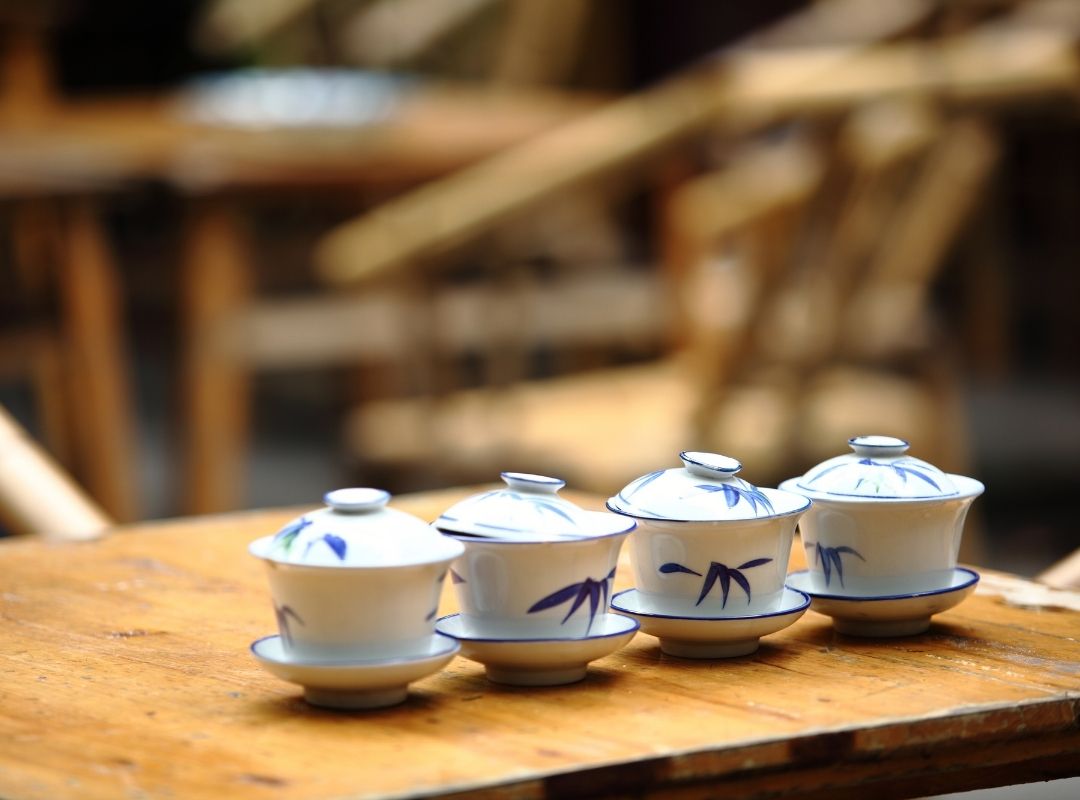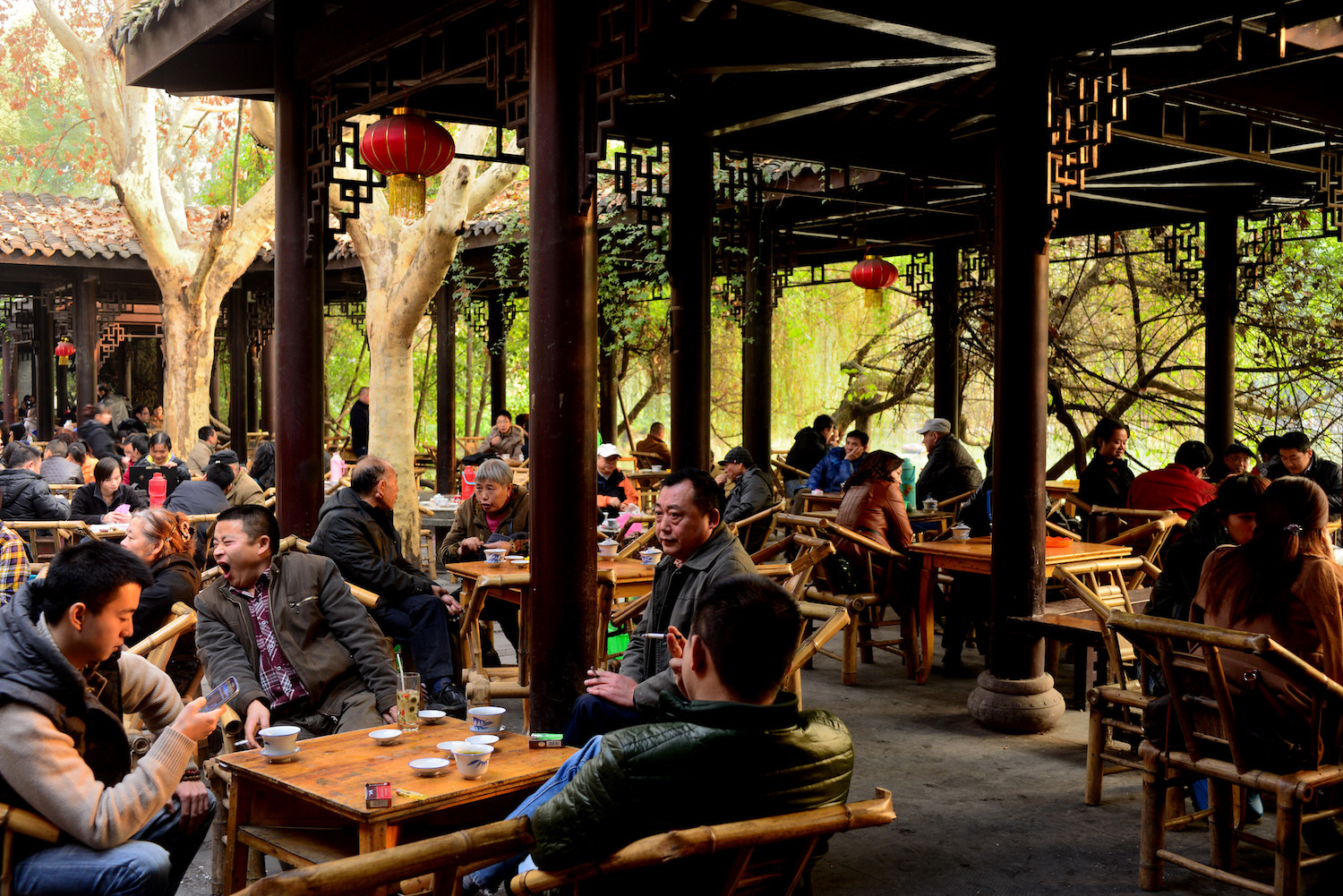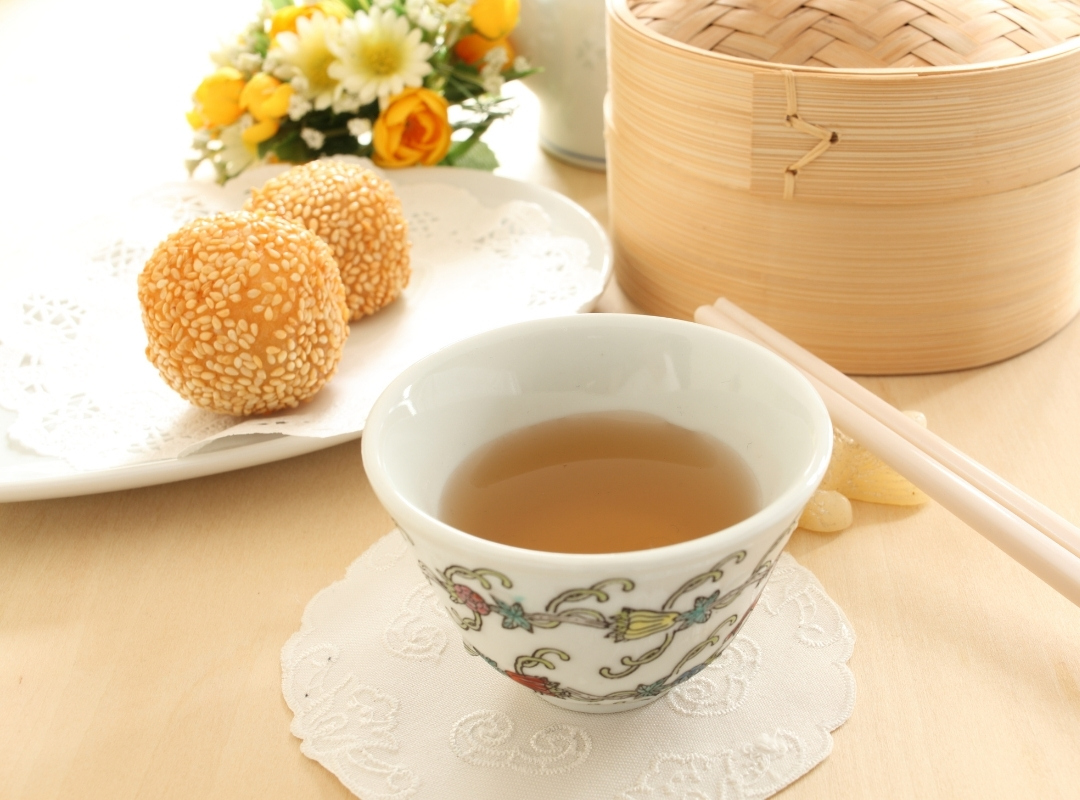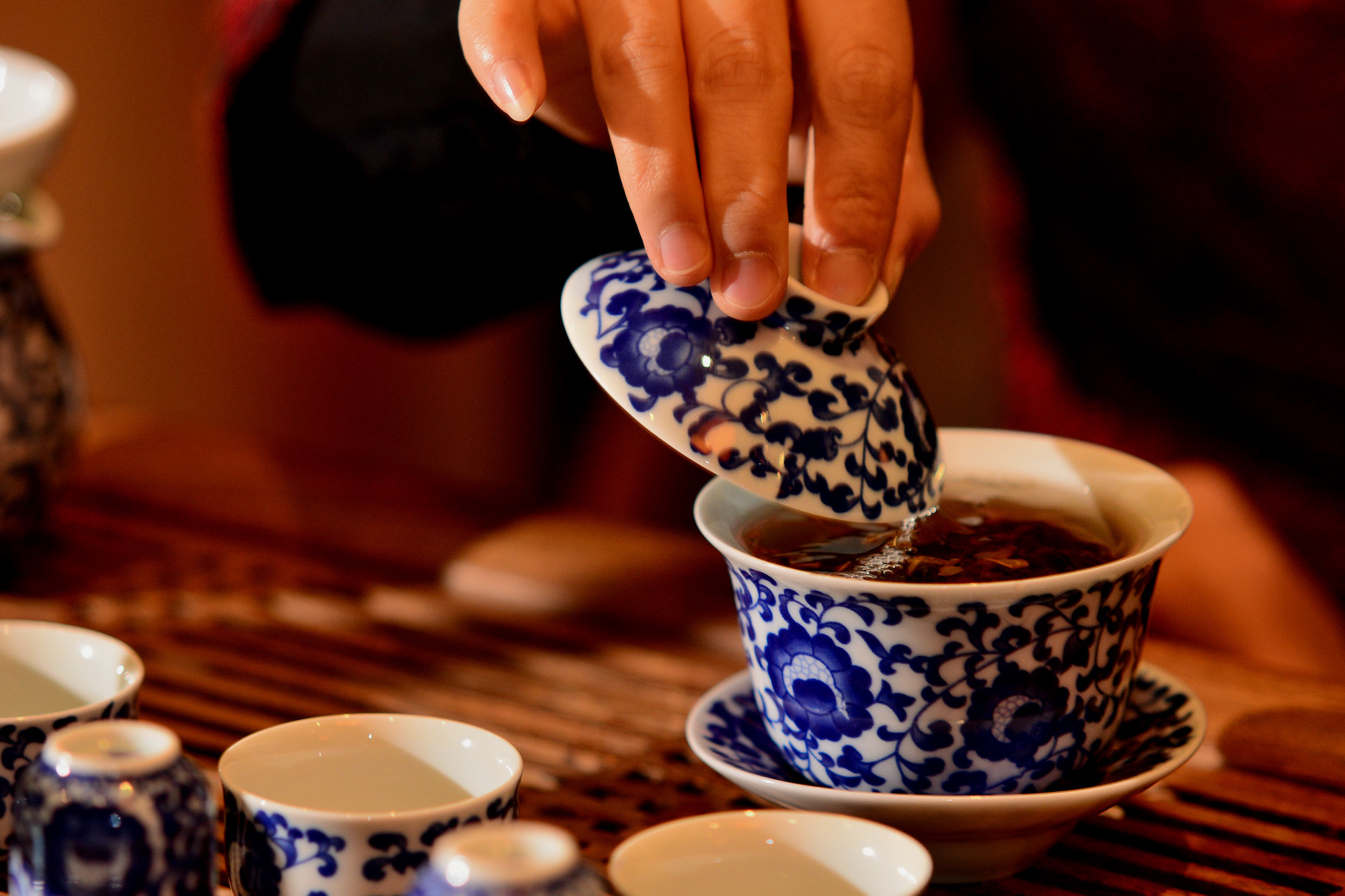Date:2021-11-02
A bit of History on Chinese Tea
China is the homeland of tea and tea has become a quintessential part of Chinese culture ever since it was discovered 4700 years ago till this day, it is considered one of the seven necessities of Chinese life. According to legend in 2737 BC, Chinese Emperor Shen Nung was sat beneath a tree whilst his servant was boiling drinking water when a light gust of wind blew some leaves from the tree into the water. Shen Nung, the renowned herbalist that he was, decided I’ll give this a try, and to his delight it was pretty good. The tree was a Camellia Sinensis, and the drink became what we now know as tea. Regardless of whether this is true or not, tea certainly has a long history in China dating back centuries with tea containers being found in tombs from the Han Dynasty (206 BC - 220 AD). However it wasn’t till the Tang dynasty (618-906 AD) when tea became a staple of the land and became firmly entrenched as the national drink of China. You can feel the spirit of tea in Chinese literature, poetry, painting, calligraphy, religion and medicine. Even Lu Yu, an author from the eighth century wrote his much celebrated first book all about one specific topic and that was tea. The book was called ‘Cha Ching’, which can be translated as ‘The Classic of Tea’, and for those tea aficionados and Chinese history buffs, it maybe worth searching out.

…
Tea Culture in Sichuan
Tea culture is widespread throughout China, but nowhere is it more prominent than in Sichuan Province, which just happens to be the home of UniEdu too. So it’s definitely the best place to be for some Chinese tea.
Sichuan has been known as the ‘Land of Abundance’ since ancient times thanks to its well-developed traditional agriculture but Sichuan is not only a major province of grain production, but also an enormous tea production base. Hence why Sichuan is regarded as being a cradle of tea culture in China and local people in Sichuan have long developed a good habit of drinking tea. That’s why teahouses all over the streets have emerged. Teahouses in Sichuan are pure and leisurely places for drinking tea, eating snacks such as sunflower seeds and peanuts, where friends gather, and in some larger teahouses where you can enjoy performances of Sichuan Opera, musicians playing the guzheng or thespians performing pingshu with a nice cup of Chinese tea. No doubt that tea culture has become ingrained with Sichuan culture and has contributed to the province and in particular Chengdu being famed for its leisurely, relaxed, slower-paced and laid-back lifestyle compared to other metropolises and regions in China.
*guzheng is a plucked zither, a traditional Chinese musical instrument
*pingshu refers to the traditional Han Chinese performing art of storytelling without a musical accompaniment

...
Tea Culture in Guangdong
There is another popular tea phenomenon which is well known and developed in south China in Guangdong Province and Hong Kong. And that is ‘Zao Cha’ or ‘Yum Cha’ which actually just means respectively ‘morning tea’ or ‘drink tea’ in Cantonese. ‘Yum Cha’ is the Cantonese tradition of drinking tea and eating dim sum for breakfast, brunch or lunch, when the whole family comes together and sit around a table to enjoy the tea and food, and the happiness of being together. Morning tea has become established as a traditional routine for many Cantonese for many decades, thus Guangdong teahouses are not solely associated with drinking tea but also Cantonese cuisine, and some have extended into being restaurants.
*dim sum is a large range of small Chinese dishes that usually enjoyed during the morning for breakfast or lunch

…
Different Types of Chinese Tea
White Tea - White tea is sweeter and made from steaming the drying immature leaves of the Camilla Sinensis Tea Bush to extract every ounce of flavour, usually using leaves from the first bud, and contains the least amount of caffeine.
Green Tea - Green tea is partially fermented, usually made from the second or third leaves of Camilla Sinensis tea bush and go through a short fermentation process. Less processed than black tea but more processed than white tea.
Black Tea - Black tea is fully oxidised, their leaves go through the oxidation process for a far longer period making it much more darker, and the taste more strong and distinctive.
Oolong Tea - Oolong tea is made through a unique way of withering the leaves of Camilla Sinensis in the sun making them slightly bruised to release the flavour, putting them through a special oxidation process that gives the tea a slightly dark green colour.
These are four main types of Chinese tea, to explore more you’ll need to do some tea tasting.
…
Drinking Chinese tea efficacy
Another reason why drinking tea has become so ingrained in Chinese culture is due to its plentiful health benefits. Here are some:
Muscle Endurance: Tea can improve muscle endurance because it contains catechins, which has antioxidant effects, increasing the body’s ability to burn fat and help fight fatigue.
Resist Ultraviolent Rays: Tea also contain polyphenols, which can fight skin aging and reduce the damage to skin caused by UV rays from the sun.
Weight Loss: Because tea features caffeine, which can increase gastric secretion and help digestion, and also enhance the ability to decompose fat, and reduce the fat index of your body.
Anti-inflammatory: the anti-inflammatory and antioxidant properties of the polyphenols in tea can also reduce the risk of heart diseases.
Improve Memory: Drinking tea can also boost your brain power as the polyphenols in tea can improve your memory and learning efficiency, thus it has been said that drinking tea can help slow down diseases such as Alzheimer’s and Dementia.
Reduce risk of Cancer: The antioxidants in tea has shown to be potent in large quantities in fighting certain forms of cancer.

…
How to Taste Tea?
In China, tasting and serving tea is an art, but not everyone knows how to taste tea, let’s learn it together.
1) Step one, smell the aroma. Stick your nose into the glass or cup and smell for 2 to 3 seconds. Try to find out if the aroma is pure enough and how intense it is, if there’s any particular scent? Do this step when the tea is between 45 and 55 degrees.
2) Step two, taste the tea. Take the tea in your mouth, feel the mellowness, flavour and clarity of the tea.
3) Step three, feel the after effect. After you drink your tea for a few seconds, feel the change in your body.
There are also plenty of tea tasting tours especially in Chengdu and Sichuan, you may want to join one of these to hear from and taste tea with a real tea expert.
…
Where to go to Drink Chinese Tea in Sichuan?
Well, Sichuan is definitely the place to be to drink some Chinese tea, the options are incredible.
Firstly in the bustling capital of Chengdu, you can go the following places:
Heming Teahouse at the People’s Park.
Yuelai Teahouse which is on the left of the Jinjiang Theatre in Jinjiang District *tip, here most Saturdays you can watch the Sichuan Opera.
There are many teahouses in the many scenic parks in Chengdu, as well as People’s Park, you can visit Baihuatan Park, Wangjianglou Park, Tazishan Park where you can find plenty of teahouses to drink tea and relax.
A special and unique Teahouse would be the Guanyinege Old Tea House in Pengzhen Town, Shuangliu, Chengdu – believed to be one of the oldest teahouses in China and provides an authentic perspective of old China seldom seen.
If you’re venturing outside of Chengdu and going further around Sichuan then the Dujiangyan Qingcheng Mountain Scene area is another wonderful choice to find some teahouses as well as enjoying the sites. When visiting the Leshan Giant Buddha, there is also an island opposite the stone carving called ‘Sun Island’ that can only be reached by boat where there are teahouses aplenty where you can not only drink tea but enjoy the full view of the Giant Buddha, well worth visiting.
…
Visit to a tea plantation in Sichuan
Do you want to see and go through the whole process of tea making from harvesting to brewing?
A great place to see this would be the Mengdingshan Mountain Tea Plantation in Ya’an where a local farmer will guide you through the process and you can also get a view of the wonderful mountain scenery of Sichuan. You will also get your private guide to act as a translator for the farmer as well. Tours can be found and booked online.
There are also tea plantation tours in both Leshan and Dujiangyan too. The Chaxigu Tea Plantation in Dujiangyan, Xiange Township, is one of the top tea plantations in Sichuan, that grows about 800 square meters of tea. Open from 9am – 6pm each day, they can provide you with an experience to tea picking and making, all for just 54 RMB per person.
…
Is the idea of having a cup of Chinese tea sound appealing to you? If you’re an expat in Sichuan or in China, we’d definitely recommend a nice cup of Chinese tea. Are you looking to study in Sichuan or China? Then we’re here to help, please get in touch at [email protected] or sign up to your account right here to start your application: https://www.uniedu.org/register
 0
+1
0
+1